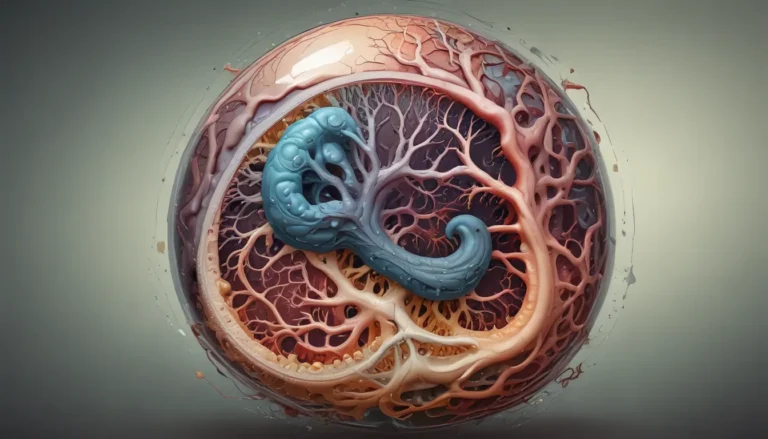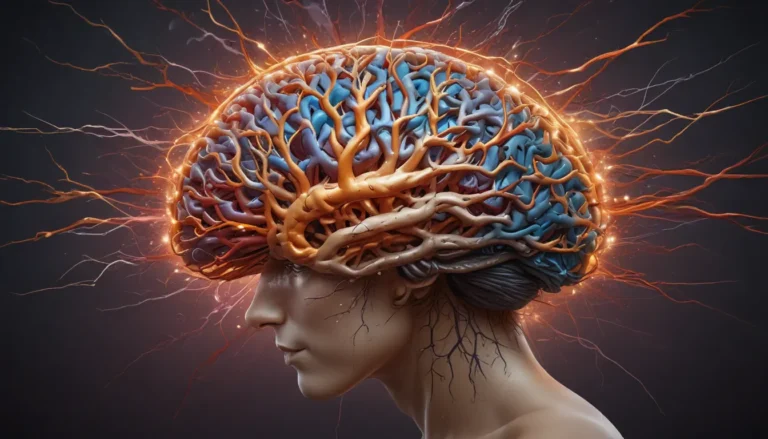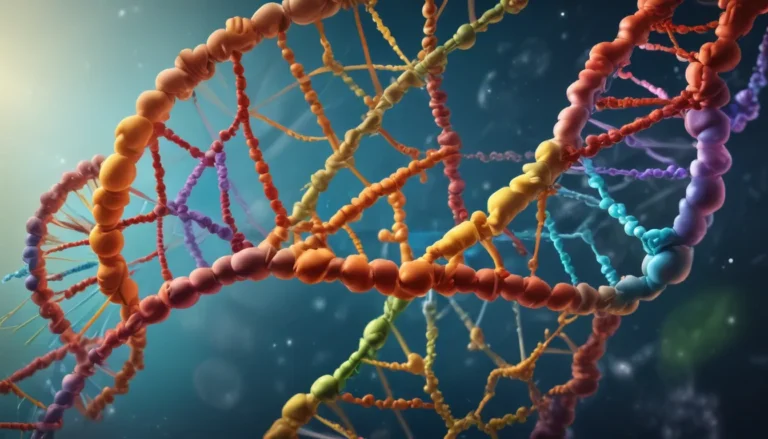A Note About Images: The images used in our articles are for illustration purposes only and may not exactly match the content. They are meant to engage readers, but the text should be relied upon for accurate information.
Delve into the captivating realm of acetyl-CoA, a pivotal molecule in cellular metabolism that orchestrates a myriad of biochemical reactions essential for our well-being. From fueling energy production to serving as a foundational element for crucial biomolecules, acetyl-CoA plays an indispensable role in the symphony of life. Join us on a journey to explore 14 mind-blowing facts about this extraordinary molecule, uncovering its involvement in metabolic pathways, its association with diseases, and its profound impact on human physiology. Whether you’re a biology aficionado or simply curious about the inner workings of the human body, this article will enlighten you with a deep understanding of acetyl-CoA and its significance in the intricate web of life.
Unveiling the Versatility of Acetyl-CoA
- Acetyl-CoA is a multitasking molecule that serves as the starting point for energy production, fatty acid synthesis, and the creation of neurotransmitters and heme, playing a pivotal role in various biological processes. From powering the citric acid cycle to being a building block for essential biomolecules, acetyl-CoA showcases its versatility and indispensability in cellular metabolism.
Acetyl-CoA: The Maestro of the Citric Acid Cycle
Step into the world of the citric acid cycle, also known as the Krebs cycle, a fundamental metabolic pathway in cellular respiration. Acetyl-CoA takes center stage in this cycle, undergoing a series of reactions to generate ATP, the energy currency of cells, to sustain vital biological functions.
The Journey from Pyruvate to Acetyl-CoA
Witness the transformation of pyruvate, a product of glycolysis, into acetyl-CoA through the pyruvate dehydrogenase reaction. This pivotal conversion, occurring in the mitochondria, lays the groundwork for further glucose breakdown and energy production.
Building Block for Fatty Acid Synthesis
Embark on a journey into the realm of lipid synthesis as acetyl-CoA serves as the cornerstone for the production of fatty acids, essential components for cell membrane structure and function. Regulated by intricate enzymatic processes, this synthesis occurs in the cytoplasm, shaping the cellular landscape.
The Role of Acetyl-CoA in Cholesterol Synthesis
Peer into the intricate biosynthesis of cholesterol, a vital lipid molecule crucial for cell membrane integrity and the production of essential compounds like hormones and bile acids. Acetyl-CoA’s involvement underscores its significance in maintaining cellular homeostasis.
Amino Acid Synthesis: An Acetyl-CoA Adventure
Explore the synthesis of amino acids, the building blocks of proteins, sourced from acetyl-CoA. Essential amino acids like leucine and lysine, pivotal for human health, find their origins in this versatile molecule, emphasizing its role in protein synthesis and cellular function.
Navigating Ketogenesis with Acetyl-CoA
Discover the role of acetyl-CoA in ketogenesis, a process triggered by prolonged fasting or low-carbohydrate diets. Witness the transformation of acetyl-CoA into ketone bodies, offering an alternative fuel source for tissues, including the brain, during times of metabolic stress.
Acetyl-CoA as a Architect of Neurotransmitters
Dive into the realm of neurotransmitters, such as acetylcholine and serotonin, derived from acetyl-CoA. These chemical messengers orchestrate crucial functions in the nervous system, modulating mood, cognition, and behavior, underscoring acetyl-CoA’s impact on brain health.
Crafting Heme: A Journey with Acetyl-CoA
Embark on the synthesis of heme, an essential component of hemoglobin vital for oxygen transport in red blood cells, guided by the influence of acetyl-CoA. Witness the intricate dance of molecular synthesis ensuring proper oxygenation of tissues throughout the body.
Paving the Path for Acetylcholine
Uncover the synthesis of acetylcholine, a neurotransmitter pivotal for muscle contraction, cognition, and memory, orchestrated by the generosity of acetyl-CoA. This critical process highlights the essential role acetyl-CoA plays in nervous system function.
Elevating Cellular Function with Biotin Synthesis
Explore the synthesis of biotin, a cofactor vital for enzymatic reactions governing various metabolic processes, supported by acetyl-CoA. Witness the collaboration between molecules to ensure optimal cellular function and metabolic regulation.
Architecting Lipid Synthesis with Acetyl-CoA
Journey into the realm of lipid biosynthesis as acetyl-CoA not only contributes to fatty acid synthesis but also plays a role in the production of diverse lipid molecules critical for cellular structure, signaling, and energy storage. Unravel the intricate pathways that shape cellular lipid composition.
Shaping Gene Expression with Acetyl-CoA
Explore the role of acetyl-CoA in epigenetic modifications, specifically histone acetylation, influencing chromatin structure and gene expression. Witness the intricate regulatory mechanisms orchestrated by acetyl-CoA, shaping the transcriptional landscape of the genome.
Guardian of Ammonia Detoxification
Delve into the detoxification of excess ammonia, a byproduct of protein metabolism, guided by the intricate urea cycle. Acetyl-CoA emerges as a key player in this detoxification process, safeguarding cells from the harmful effects of ammonia accumulation.
Orchestrating Porphyrin Synthesis
Embark on a journey into the synthesis of porphyrins, essential components of critical molecules like heme, chlorophyll, and cytochromes, choreographed by the influence of acetyl-CoA. Witness the intricate dance of molecular synthesis ensuring the proper functioning of vital biological systems.
Conclusion: A Symphony of Cellular Metabolism
In conclusion, acetyl-CoA emerges as a fascinating linchpin in cellular metabolism, orchestrating a multitude of vital processes essential for human health and well-being. From energy production to biomolecule synthesis, acetyl-CoA’s role as a central hub in metabolic pathways underscores its significance in maintaining cellular homeostasis and function. Understanding the intricate nuances of acetyl-CoA sheds light on the complexities of cellular metabolism and its implications for human health and disease. As we unravel more mysteries surrounding acetyl-CoA, the potential for advancements in pharmacology and biotechnology shines brightly on the horizon.
FAQs: Unveiling Acetyl-CoA Insights
-
What is Acetyl-CoA?
Acetyl-CoA is a pivotal molecule central to cellular metabolism, serving as a crucial intermediate in various metabolic pathways and facilitating the synthesis of essential biomolecules. -
How is Acetyl-CoA formed?
Acetyl-CoA is synthesized through the breakdown of carbohydrates, fats, and proteins in cellular respiration processes, such as glycolysis, fatty acid oxidation, and amino acid decarboxylation. -
Why is Acetyl-CoA important for energy production?
Acetyl-CoA plays a critical role in energy production by entering the citric acid cycle, where it undergoes oxidation to generate ATP, essential for sustaining cellular functions and metabolic processes. -
Can Acetyl-CoA be converted into other molecules?
Yes, Acetyl-CoA serves as a precursor for the synthesis of various molecules, including fatty acids, cholesterol, ketone bodies, and amino acids, showcasing its versatility in cellular metabolism. -
How does Acetyl-CoA regulate gene expression?
Acetyl-CoA participates in epigenetic modifications, particularly histone acetylation, regulating chromatin structure and influencing gene expression by modifying DNA accessibility for transcription factors.
Embark on a captivating journey through the intricate world of acetyl-CoA, unraveling its profound impact on cellular metabolism and human health. As we delve deeper into its molecular intricacies, the boundless potential for discovery and innovation in the realms of biology and medicine beckons, promising a future paved with groundbreaking insights and transformative discoveries.






